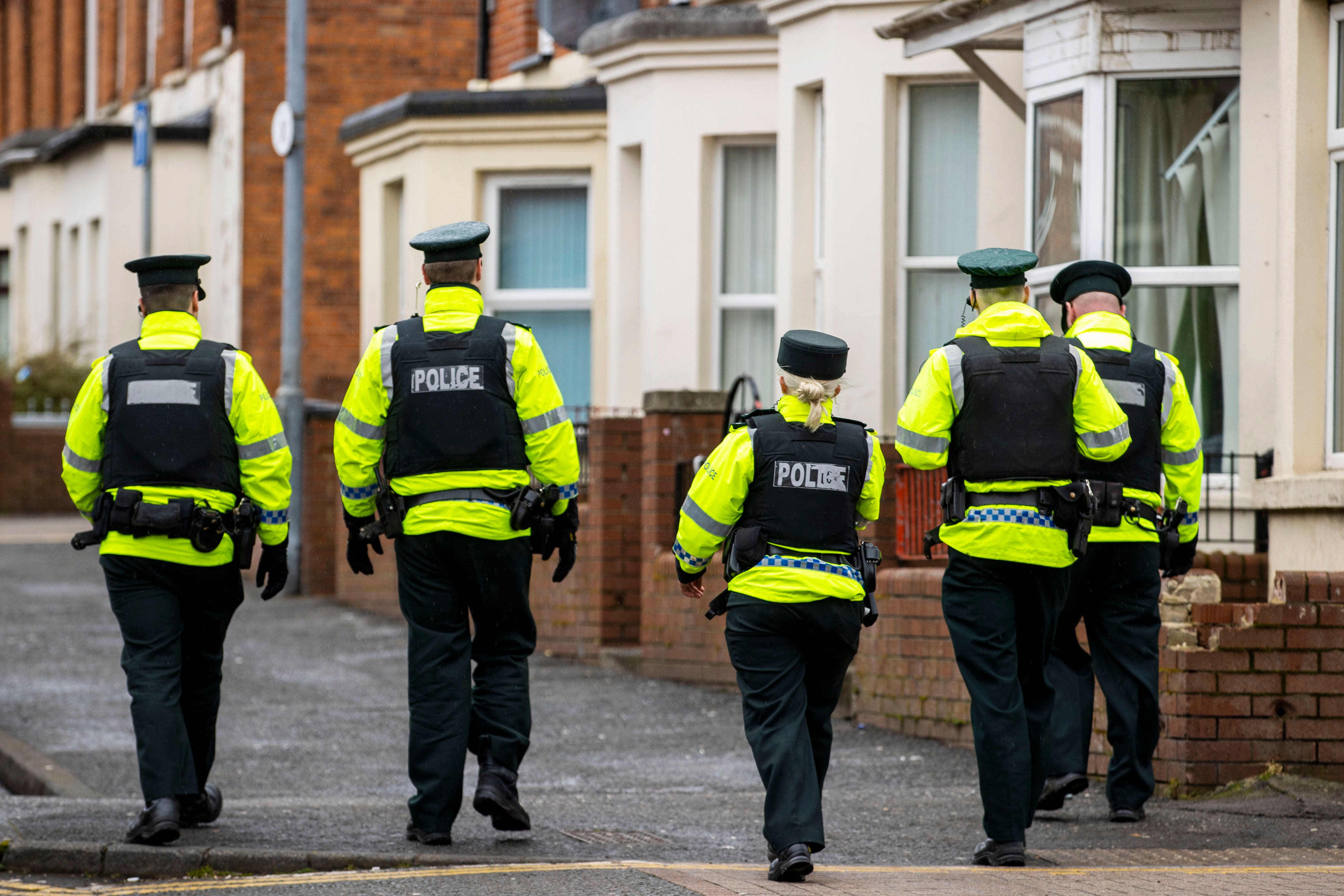NI chief constable aims to boost officer numbers to 7,000
The PSNI currently has about 6,300 officers, well down on the 7,500 recommended in the Patten review.

Your support helps us to tell the story
From reproductive rights to climate change to Big Tech, The Independent is on the ground when the story is developing. Whether it's investigating the financials of Elon Musk's pro-Trump PAC or producing our latest documentary, 'The A Word', which shines a light on the American women fighting for reproductive rights, we know how important it is to parse out the facts from the messaging.
At such a critical moment in US history, we need reporters on the ground. Your donation allows us to keep sending journalists to speak to both sides of the story.
The Independent is trusted by Americans across the entire political spectrum. And unlike many other quality news outlets, we choose not to lock Americans out of our reporting and analysis with paywalls. We believe quality journalism should be available to everyone, paid for by those who can afford it.
Your support makes all the difference.Northern Ireland’s chief constable is aiming to boost his force to 7,000 officers.
The Police Service of Northern Ireland (PSNI) currently has about 6,300 officers, well below the 7,500 level recommended in the Patten Review.
However Chief Constable Jon Boutcher said that when taking into account sickness absence and duty restrictions, they have in the region of 4,500 deployable officers.
In his report to the Northern Ireland Policing Board, Mr Boutcher said he is preparing a recovery plan to address officer numbers.
He said “we cannot lower our numbers any further”.
Referring to serious disorder which broke out on the streets of Belfast in early August after an anti-immigration protest, Mr Boutcher said “recent challenging events have shown the reality of deployable police officer numbers, which are now in the region of 4,500 when we take into account sickness absence and duty restrictions”.
The PSNI was recently bolstered by 80 officers from Police Scotland after a mutual aid request over the August disorder.
“I will be preparing a recovery plan to address this,” Mr Boutcher said.
“Through maximising the training capacity of the Police College and commencing direct officer entry to the PSNI, we aim to achieve circa 7,000 police officers by the end of the plan’s third year.
Mr Boutcher also hit back at a letter from the Permanent Secretary at the Department of Justice, Hugh Widdis, which cautioned him for having acted “outside well-established financial protocols” by writing to Prime Minister Sir Keir Starmer making the case for more financial support.
In his report to the Policing Board, Mr Boutcher said he “will do everything possible to secure a better funding settlement for the PSNI”.
“I disagree strongly with any rebuke about my approaching the Prime Minister,” he said.
“This is something that I was entitled to do and it did not breach any protocol or principle.
“The funding and effectiveness of the PSNI engages the interests and responsibilities of both the devolved and Westminster Governments. I can, and will, communicate with both as necessary, and do not consider that I need the authority or approval of either one in order to do so.
“The resourcing and funding of the PSNI have continued to worsen over a number of years and I am duty bound as Chief Constable to highlight the impact this is having on victims, the community and the workforce.
“The current budget is simply inadequate and the pressures on the service are unsustainable. These are issues I have raised repeatedly.”
The Police Federation for Northern Ireland, which represents rank and file officers, expressed concern at what it termed a “further slide in numbers”.
It said the latest officer numbers are 6,298, but this drops to 6,197 when student officer numbers are deducted, with just 4,500 deployable for the full range of operational duties.
Federation chair Liam Kelly urged “significant financial investment” for the PSNI.
“Time is not on our side. I know preparatory work is currently under way to produce a Business Case for more resources – a recovery plan to try to bring police officer numbers back up towards 7,000 over the next three years,” he said.
“We welcome this, but it urgently needs to be funded and be put into action as expeditiously as possible. The dithering and procrastination need to stop so that policing can effectively recover as quickly as possible.
“That can only benefit our society and assist the brave women and men of the PSNI that I represent.”